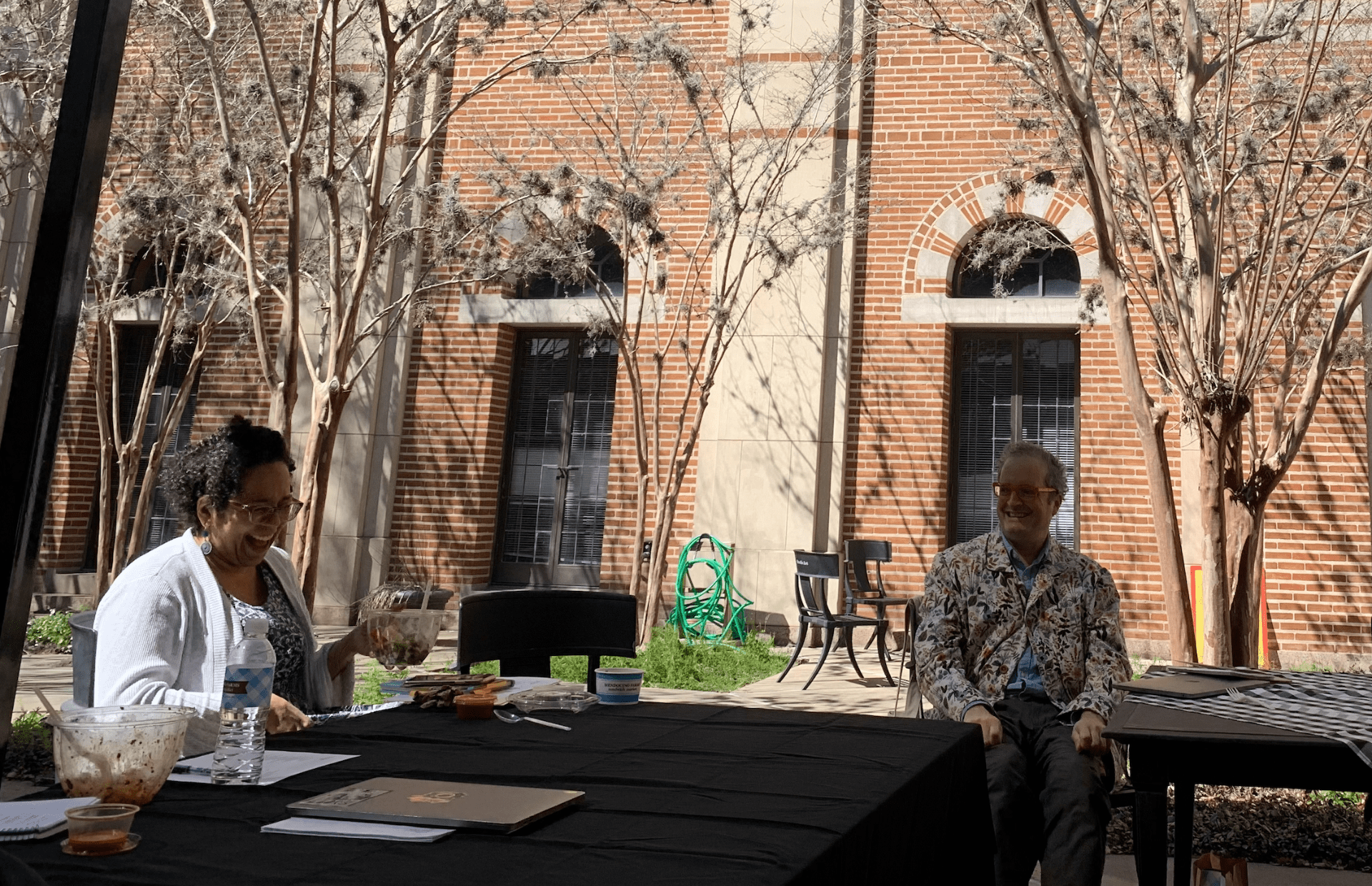
Before spring break, the English Department in association with the Department of Visual and Dramatic Arts hosted a luncheon with distinguished poet francine j. harris on Rice’s campus.
francine j. harris is a published author and has written Here Is the Sweet Hand (2020), play dead (2016), and allegiance (2012). her work has been featured in several journals, she is the recipient of numerous writing awards, and is currently an associate professor of English at University of Houston.
Several Creative Writing Concentration students were invited alongside an equal number of Visual and Dramatic Arts students to learn from harris and to engage with her on the topic of poetry. This event was one of the few in which the Department of Visual and Dramatic Arts and the Creative Writing Program were able to collaborate and experience each other’s presence in a creative, communal space.
As the food order arrived — quinoa salad — each student went around the circular structure of tables to introduce themselves. The chilly, spring wind contrasted well with the warm beating down of the sun, creating an ambiance for discussing writing that kept each member of the group sharply engaged.
harris readily memorized the name of each student, making the participants in the event feel seen despite the fact that harris had just met them. The conversation quickly turned to a poem that harris had brought to present to the class in order to facilitate a more narrowed discussion of craft.
harris passed out several photocopies of the poem, “Venus’s Flytraps” by Yusef Komunyakaa. harris discussed how she typically teaches this poem through the lens of P.O.V . (Point of View) — a rhetorical device used to engage the reader with the material. harris went on to enumerate the interconnectedness of POV with perspective, and how the poem delivers a message about hindsight through the way it signals the age of the narrator in language and word choice.
The Creative Writing students were asked to have a short piece prepared to read aloud to the group, and, following the guided poetry discussion, each student read their work out to the group. harris offered commentary on each piece, asking questions that indicated her interest in the emerging writers around her.
harris moved the discussion to that of vulnerability, privacy and risk when it comes to being a writer. She connected the notions of risk to those of value — communicating to the group that the work that is valued is often the most risky in terms of the information it divulges, the form it takes, etc.
harris went on to say: “What is the value and priority that we put on certain types of language? I try to debunk these values, to scale back, to take a step back. I don’t think there’s any words that you can’t use. I don’t think there are any rules across the board. I’m trying to debunk the notion that any language is forbidden.”
harris also discussed the differences between prose and poetry, maintaining that the two, though valuable in their own ways, retain distinct contrasting features that separate their purpose: “Prose prioritizes data and poetry prioritizes language. We want the experience of the feeling and poetry does that through language and through the compression of language.”
The event was one in which a creative energy buzzed and filled the space, where original work was shared and performed by curious minds, and where the advice of a published poet was given to students who dream of publishing a book of poetry one day.
